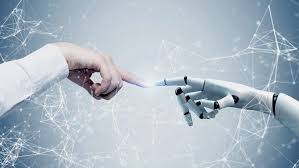Source: vaticannews.va
The increase in the number of cancer cases worldwide is a major cause for concern for the medical community.
Doctor Alexandru Floares, a speaker at a 3-day workshop organized by the Pontifical Academy for Life on Ethics and Artificial Intelligence (AI), spoke to Vatican Radio on the potential for larger strides in the field of oncology and medical research through the efficiency that AI provides.
Dr. Floares, a Neurologist, specialist in AI applications in Oncology, and President of Solutions of Artificial Intelligence Applications (SAIA), gave a presentation titled “AI in Oncology.”
In his interview with Vatican Radio, Dr. Floares spoke on issues bordering on access to data for medical research, solutions to the emerging issues surrounding the use of AI in healthcare, and the revolutionary role of AI in the field of medicine.
“The problems related to applying AI to medicine and oncology can be solved relatively easily,” he said. “This means that when a problem is clearly and pragmatically formulated, it can be solved in a matter of months or at most a year. The benefits of applying AI in medicine, when we put them in a balance, are very important.”
Poor man’s Approach
Speaking on steps towards eliminating bias in data collection, Dr. Floares noted that bias is predominantly the fault of human data input into the algorithm and not an inbuilt AI defect.
“We should not blame the AI for poor results if we do not put in the proper data to assist the AI’s predictive capabilities,” he said.
Giving the example of his experience while collecting data for his molecular diagnostic test for cancer diagnosis, he expressed his suspicion of already available data. He rather opted for what he refers to as the “poor man approach.”
“I found mine to be better because the data is less biased. It is better to have 1,000 patients from various studies and to integrate them instead of having one big study with 1,000 patients because the data is less biased and so the predictive model behind the test is more robust, generating better to (represent) different kinds of population that were not involved when the system was developed. So the poor man’s strategy became a good strategy for fighting against bias in data.”
Checking misuse of AI and data
On the issue of the possible misuse of AI, Dr. Floares is of the opinion that the different actors in the field of AI will help curb excesses.
“Collecting data is a good idea. I am on the optimistic side. I am sure there will be opposition too and all these forces working in different directions will create equilibrium for humanity. Hopefully the best.”
He furthermore insisted on active involvement in reining in excesses.
“Test AI systems. That is the most pragmatic way to do things to see if it is good or not. Instead of debating and having few actions,” he said.
AI revolution at hand
“A revolution that started in 2012 and is just showing its first impressive results… I did not believe that AI will ever beat the human in dealing with images because our brain – the result of evolution is very well developed. I realize that this is possible and the strategy is for human intelligence to collaborate with artificial intelligence. This will be the greatest team we have ever seen,” he said.
“I see the light. I see a great future. It has just started.”


